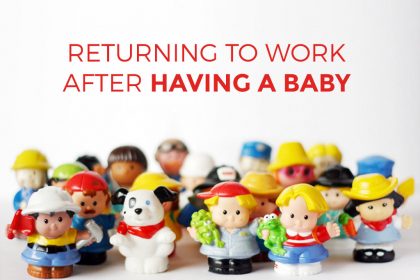How to speed up your job search
Frustrated at how long it is taking you to find a new job? Find out how you can speed ups your job search.
According to a recent study, “the average job search may take somewhere around five to six months from application to hiring.”
This means that the average candidate will also receive several (and often disheartening) rejections while also dealing with a lot of employment-related anxiety. For example, you may worry about paying your bills or finding a job that you genuinely enjoy.
Thankfully, there are various tips and tricks you can use to get your job-searching mojo back in the new year, many of which can actually speed up your job search and help you to score your dream job.
Refine your resume
In most cases, your resume is the first thing a potential employer will look at when you apply for a role. As a result, you must ensure that your resume:
- Provides the reader with a detailed employment history and a list of relevant qualifications.
- Is well formatted and structured while also being free from errors/mistakes.
- Includes your contact details, including a mobile number and email address.
It is also essential that you ensure your resume is not outdated. For example, in the past, job seekers were encouraged to include lists of their hobbies in their resumes, whereas modern employers are more concerned with soft skills. Additionally, basic tech abilities are a given in the modern world, meaning you don’t need to include them.
Demonstrate soft skills
Employers are often looking for soft skills alongside specific qualifications and experience. After all, soft skills reflect how you will use your knowledge and expertise in the workplace or how you will gel with the team. As such, you should work on developing your soft skills, such as:
- Time management. Being able to manage your time effectively shows an employer that you are focused and goal-orientated, both of which will make you an asset to any team.
- Resilience. If you are unsure what is resilience, or its role in the workplace, it’s best to view it as an attitude that you can adopt. A resilient attitude will allow you to respond quickly to challenges without becoming overwhelmed – which means you’re a great fit in a fast-paced workplace.
- Networking. Being able to network effectively is another excellent soft skill and something that employers are desperately looking out for. After all, you can use the connections built through networking to grow the company or interact with customers.
Tailor your cover letter and resume for each job
When working your way through numerous job applications, it’s easy to send off the same resume and cover letter each time – especially if the roles are similar.
However, the truth is employers can tell the difference between a carefully constructed application and a copy-and-paste one. As such, you should ensure that you tailor these documents each time you send a specific application.
One way in which you can tailor your applications for success is by carefully scanning the job description and highlighting any keywords or phrases. You should then ensure they feature in some way in your application. This is particularly important when you consider the fact that “more than 90% of resumes are searched for job-specific keywords.”
Be selective in your applications
When searching for the perfect job, it’s only natural to want to send off as many applications as possible. After all, this seems to increase your chances of success. However, many studies have found that more selective applicants find work quicker than those applying for any role they stumble upon.
This is because you can then give yourself the necessary time to complete each application and send out detailed responses to any questionnaires and surveys. You can also take some time to research the company and ensure they are the right fit for you.
Do your research before an interview
Around 20% of applicants receive an interview invitation. While this means you’re already in a good position, it’s crucial that you use this opportunity wisely and do not let it pass you by. As such, you should be aware of the many different
things you need to research before a job interview, such as company policies, the role in question, recent industry developments, and the company culture.
This way, you can ask questions that demonstrate your interest in the role and commitment to success. It will also help you determine whether or not the role is right for you.
Dress to impress at a job interview
While the clothes you wear are not indicative of your skills or what you bring to the table from a professional stance, they do contribute to your success in an interview setting. In fact, “research indicates that attire has a heavy influence on a person’s first impression of you and can even impact how they perceive your levels of confidence, success, trustworthiness, and flexibility.”
As a result, you should ensure you dress to impress during your interview. Wear clothes that are comfortable but professional. Thankfully, studies suggest that being well-dressed can also boost your confidence, which could also help you perform better in the interview.
Ask for feedback after your interview
Rejection is a normal part of the application process. However, the way in which you respond to this rejection can determine the length of time you spend as a job seeker. For example, you should always reply to rejection emails to thank them for their time and ask for feedback.
Receiving feedback – however harsh- can make you aware of any mistakes you may be making, meaning that you can rectify them by the time your next interview rolls around.
For example, if you are criticized for giving ‘textbook’ responses to questions, you can find ways to be more creative in your responses moving forward by drawing upon your own experiences and giving examples.
If they found you were too nervous, you can work on building your confidence or your ability to ‘sell’ yourself in the interview. Either way, you’re given some guidance on what you need to do moving forward, so you do not encounter the same issues time and time again.
Photo by Venlier Anh










